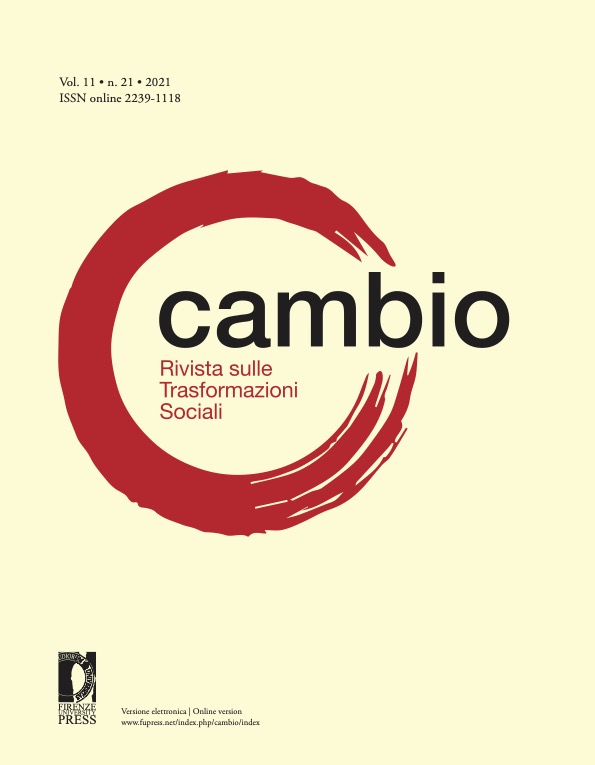Abitare informale e regolazione violenta. Disagio abitativo e reti criminali ai margini della Capitale
Published 2021-11-30
Keywords
- informal housing,
- urban marginality,
- urban security policies,
- social inequality,
- organised crime
How to Cite
Abstract
Informal housing includes the range of practices associated with producing or occupying residential spaces which falls beyond formal systems of urban planning. In this field it is complicated recognize what is legal or illegal and informal self-building and social innovation coexist with urban crime. On the one hand, informal housing is an opportunity for counter-movements against marketisation of the housing sector (squatting, self-construction, grassroots neighbourhood organisations). On the other hand, in the informal housing we can find urban crime, including organised crime groups, which control over the territory, occupy public housing, and manage public housing building. Massive urban security policies tackled informal space through segregation, surveillance, and punitive initiatives. Here the accusation of “mafia” has intensity the criminalisation of urban poverty, and the complexity of socio-spatial inequality is confused under the penal repression. The essay tries to deepen this ambivalence by looking at the outskirts of Rome and, in particular, at the relationship between informal housing in neighbourhoods with public housing complexes, with a high concentration of socio-economic disadvantage and high criminal density.


